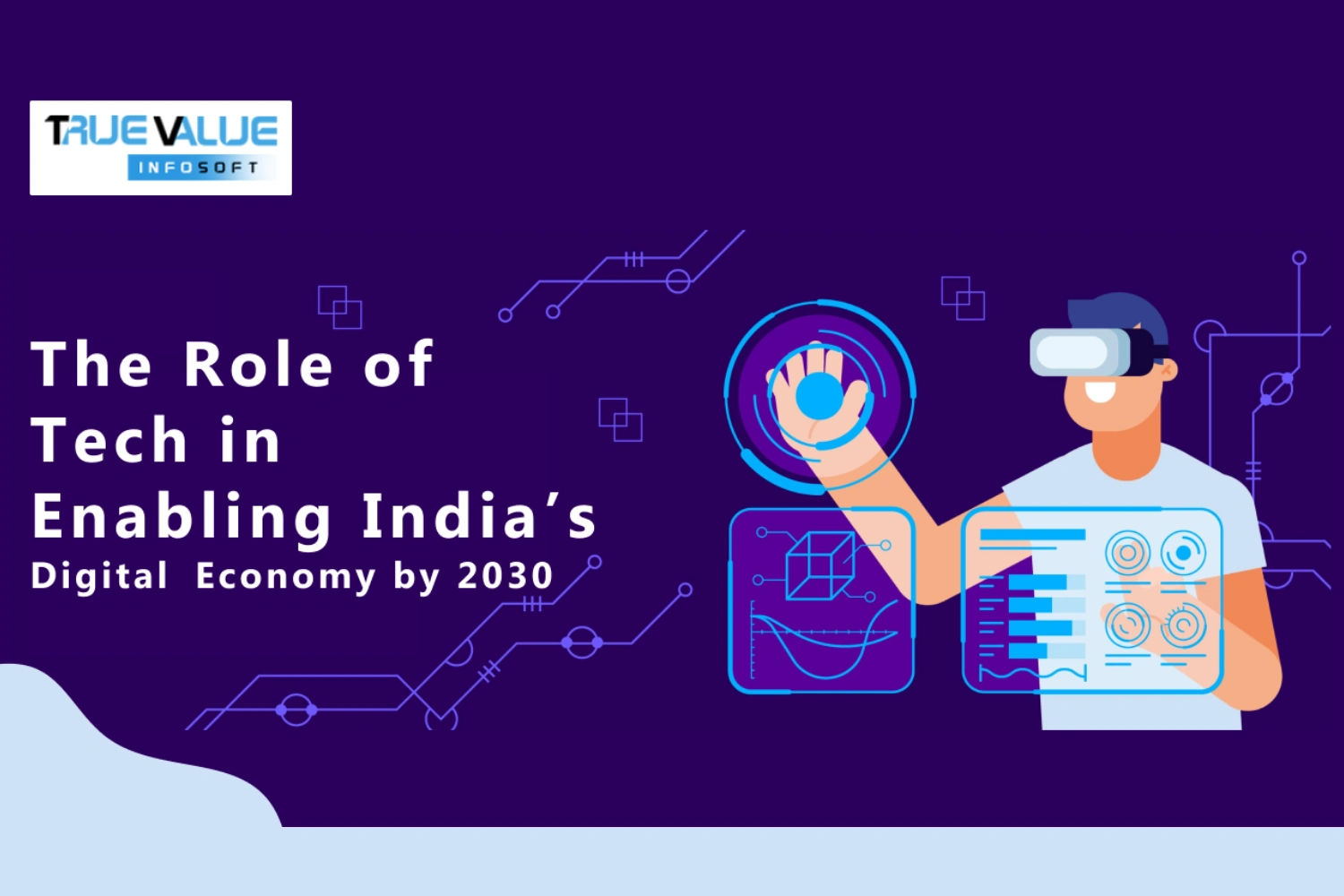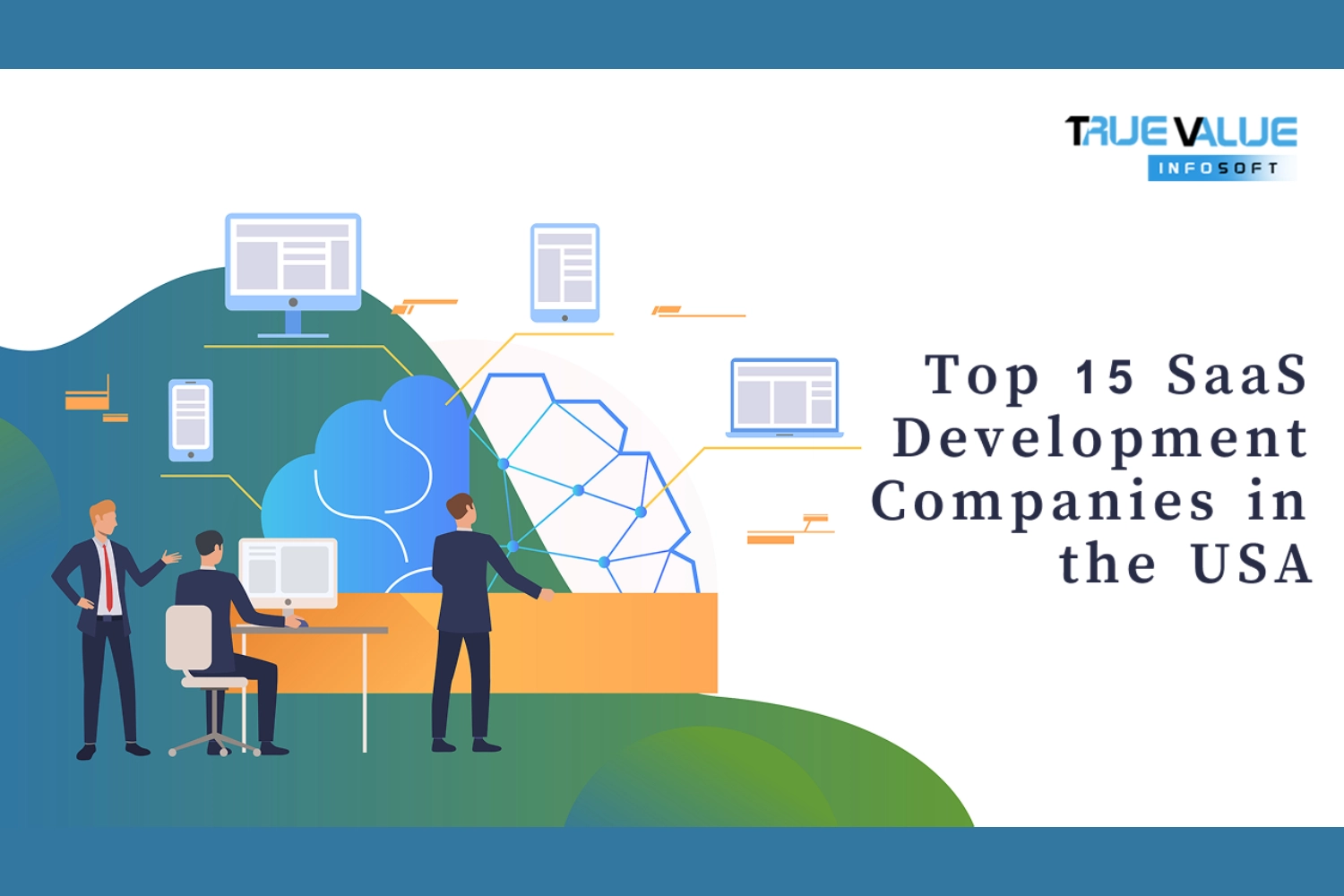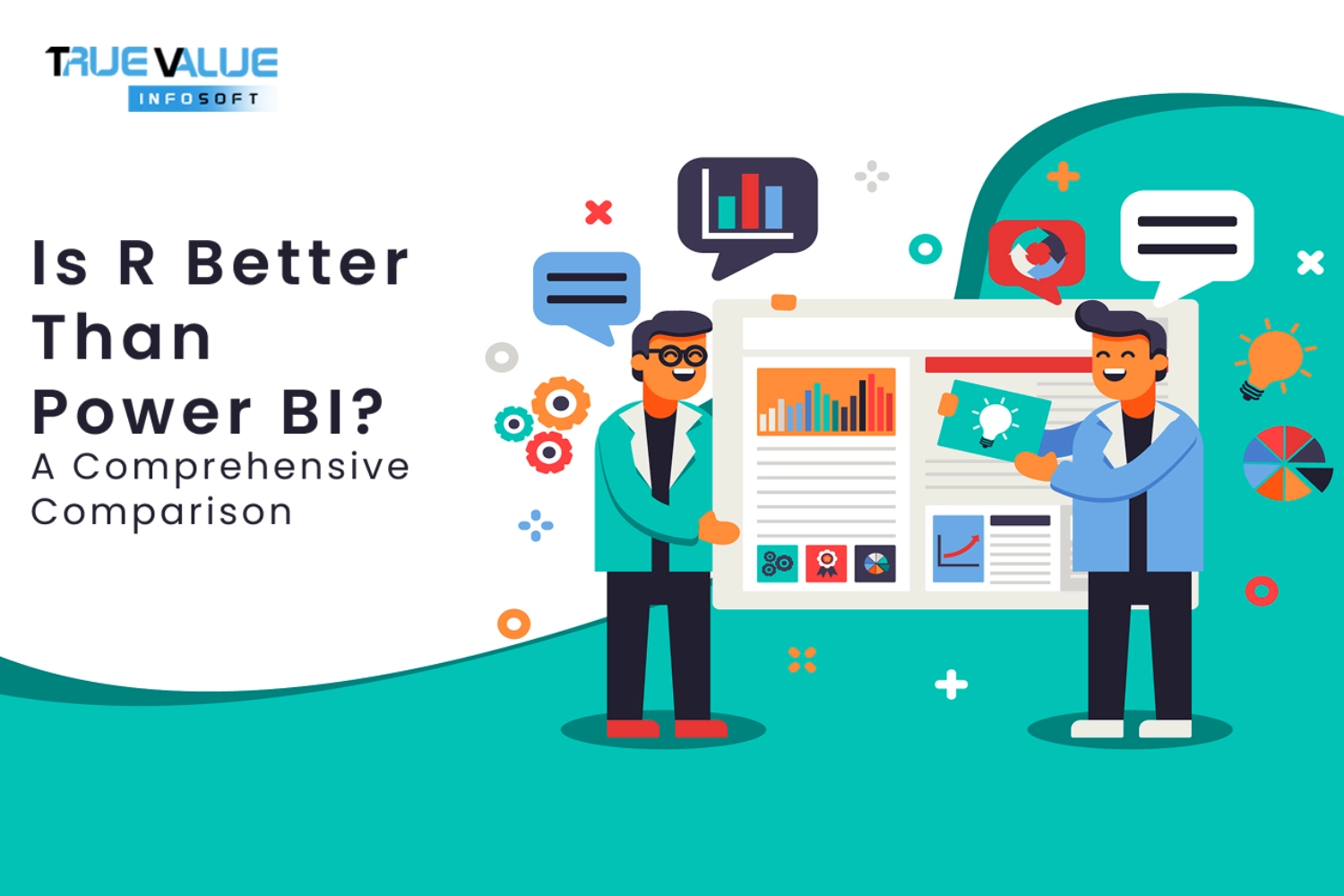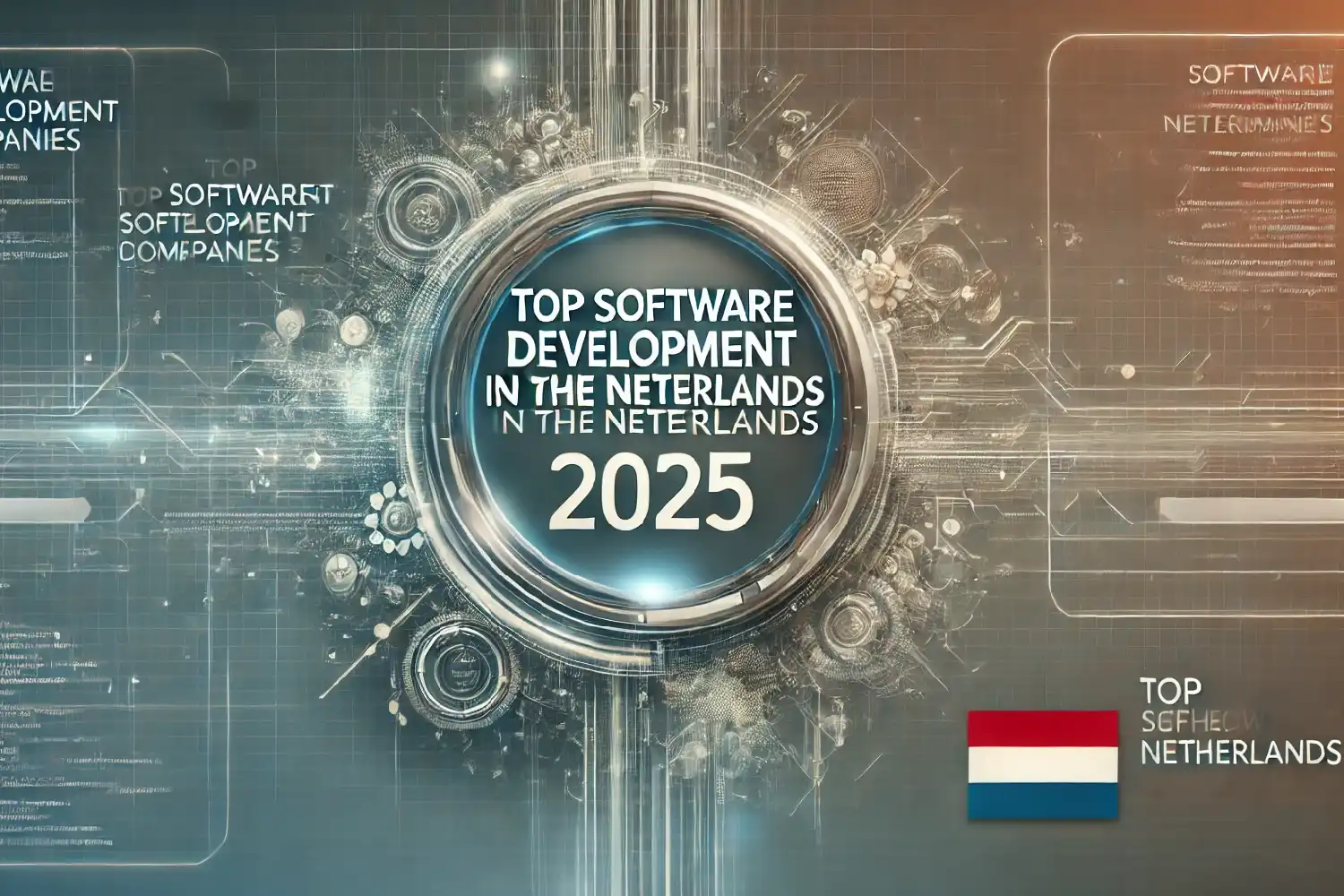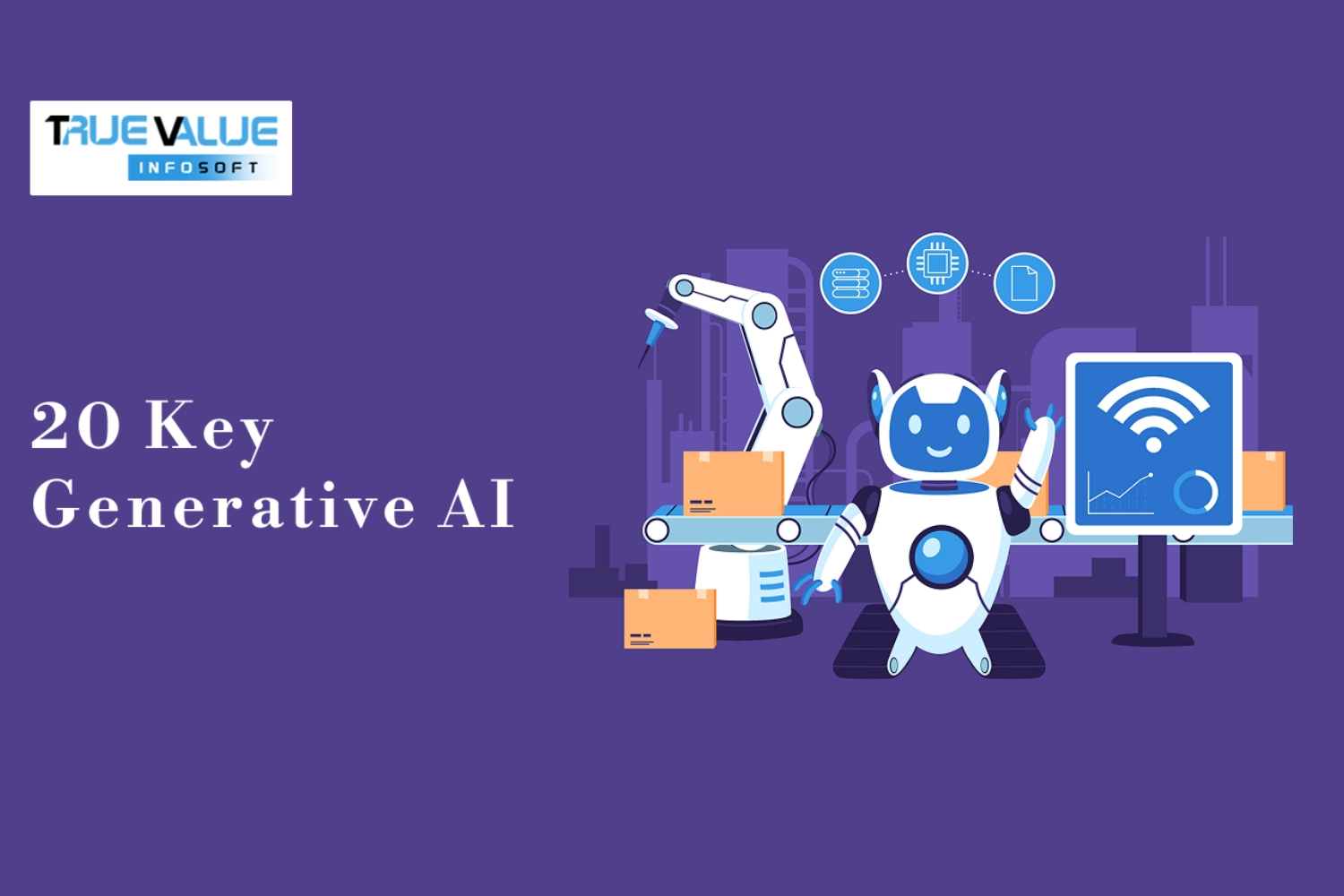Introduction
How is technology shaping the future of India's digital economy, and what role do IT companies play in this transformation? As India moves toward becoming a $5 trillion economy, digital advancements are at the forefront of this growth. With over 900 million internet users projected by 2030, the country is experiencing a rapid shift toward a technology-driven economy, impacting industries such as fintech, e-commerce, healthcare, and education.
One of the key enablers of this transformation is True Value Infosoft, a leading IT company in India. With its cutting-edge software solutions, True Value Infosoft is helping businesses adapt to digital trends, ensuring seamless integration of AI, cloud computing, and cybersecurity solutions. According to industry reports, India’s top IT sector is expected to reach $350 billion by 2030, with companies like True Value Infosoft playing a vital role in driving innovation and digitalization.
From smart governance to digital payments and artificial intelligence, technology is paving the way for a more connected and efficient digital economy. This article explores the role of tech in enabling India's digital future and how companies like True Value Infosoft are leading this revolution.
What is Technology?
Technology refers to the application of scientific knowledge to develop tools, systems, and solutions that improve human life. It encompasses various domains, including information technology (IT), artificial intelligence (AI), cloud computing, blockchain, the Internet of Things (IoT), and more. In the context of the digital economy, technology enables automation, data analytics, connectivity, and efficiency, driving economic progress and innovation.
What is a Digital Economy?
A digital economy is an economic system primarily driven by digital technologies. It includes online transactions, digital payments, e-commerce, digital services, and the integration of AI and big data into business and governance. The digital economy enhances productivity, reduces costs, and provides new opportunities for businesses and consumers.
India’s digital economy has seen rapid expansion due to increasing internet penetration, mobile connectivity, digital banking, and government initiatives like Digital India. By 2030, it is expected to become a key driver of economic growth, job creation, and technological innovation.
The Role of Technology in India’s Digital Economy
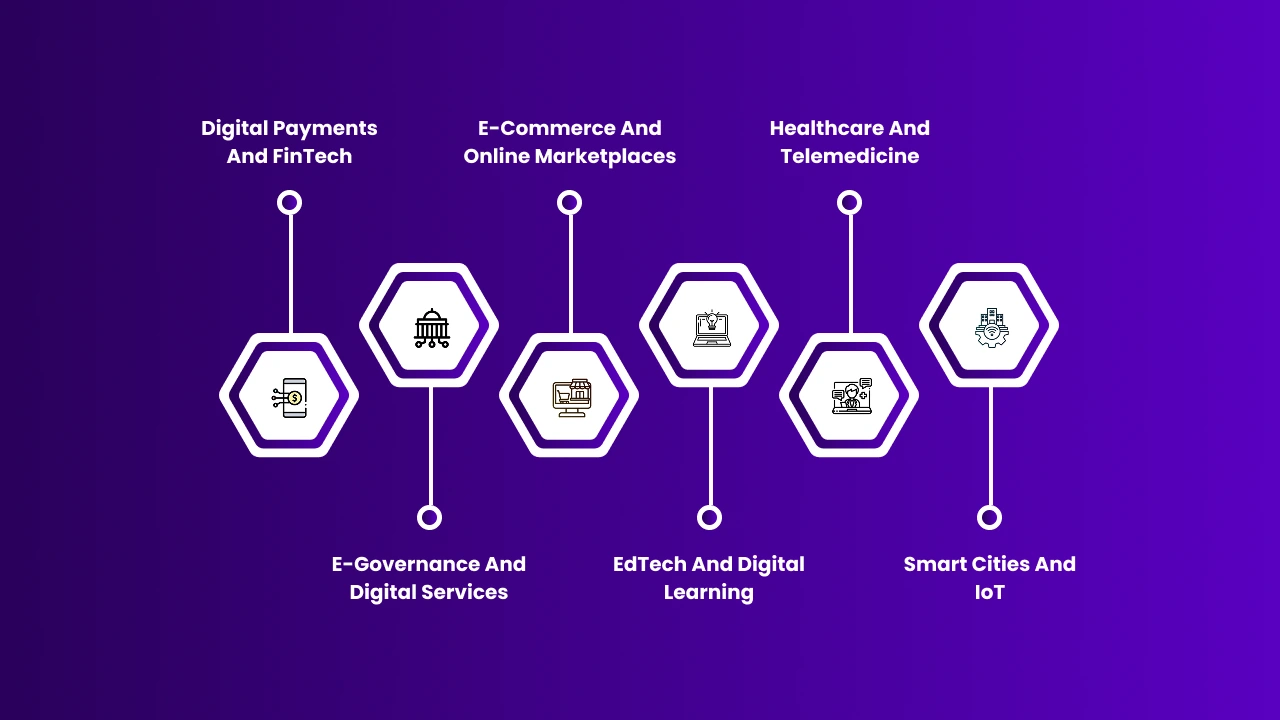
Technology plays a crucial role in the development of India’s digital economy in the following ways:
- Digital Payments and FinTech
- The adoption of Unified Payments Interface (UPI), mobile wallets, and digital banking has revolutionized financial transactions in India.
- AI-driven risk assessment and blockchain-powered secure transactions enhance financial inclusion and security.
- E-Governance and Digital Services
- AI-powered recommendation engines and digital payment systems enhance user experiences.
- E-Commerce and Online Marketplaces
- Platforms like Amazon, Flipkart, and Reliance JioMart have transformed retail by offering digital marketplaces for businesses and consumers.
- EdTech and Digital Learning
- Online learning platforms such as BYJU'S, Unacademy, and Coursera have made quality education accessible.
- AI-driven personalized learning and interactive content are revolutionizing education.
- Healthcare and Telemedicine
- AI-powered diagnostics, remote consultations, and digital health records improve healthcare accessibility.
- Startups like Practo and Apollo 24/7 leverage digital platforms for enhanced patient care.
- Smart Cities and IoT
- IoT-enabled smart infrastructure optimizes traffic management, waste management, and energy consumption.
- AI-driven data analytics enhance urban planning and sustainability.
Major Factors Affecting the Digital Economy
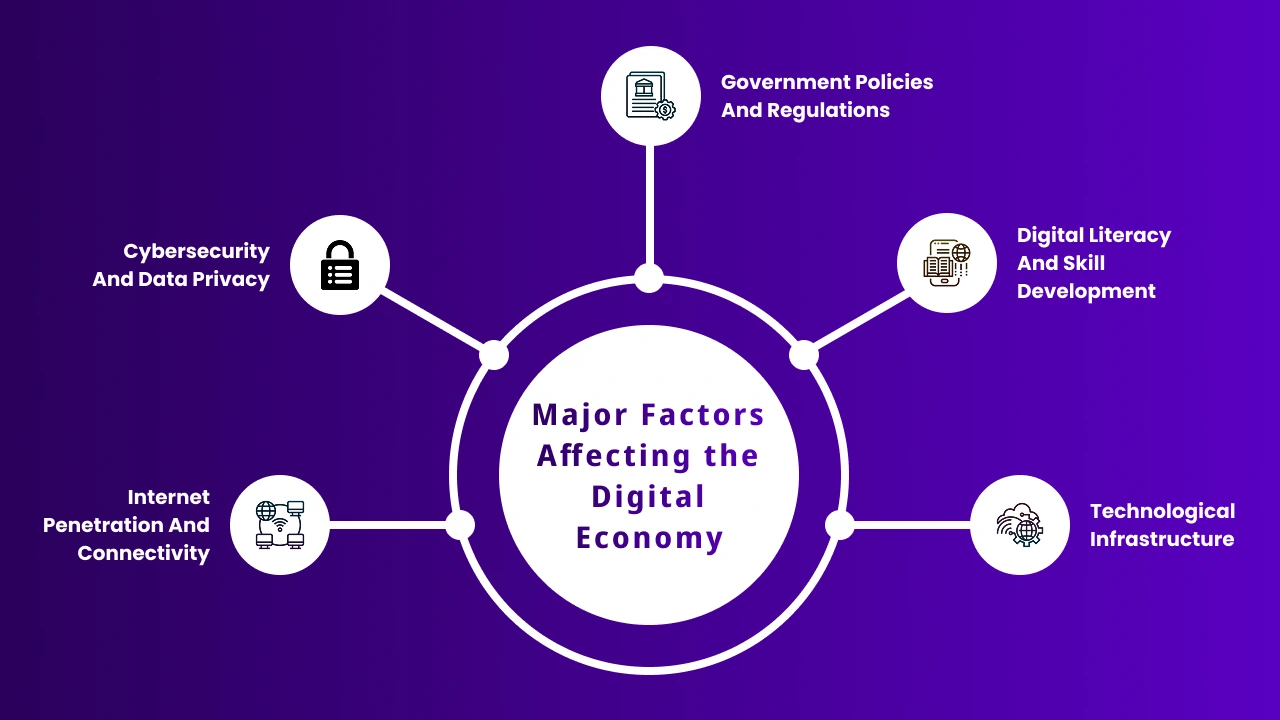
Several factors influence the growth and effectiveness of India’s digital economy:
- Internet Penetration and Connectivity
- Expanding broadband and 5G networks will enhance digital access, particularly in rural areas.
- Cybersecurity and Data Privacy
- Strengthening cybersecurity frameworks is crucial to building trust in digital transactions and services.
- Government Policies and Regulations
- Supportive policies like the Data Protection Bill and initiatives like Make in India drive digital growth.
- Digital Literacy and Skill Development
- Upskilling the workforce in AI, cloud computing, and blockchain is essential for a robust digital economy.
- Technological Infrastructure
- Investments in data centers, AI research, and blockchain development will accelerate digital transformation.
Importance of Technology in the Digital Economy
Technology is vital to the digital economy because:
- It enhances efficiency, reduces operational costs, and enables real-time transactions.
- AI and big data provide insights for informed decision-making.
- Cloud computing and digital platforms drive scalability and innovation.
- Digital transformation improves customer experiences and accessibility.
Why Choose True Value Infosoft for Tech Solutions?
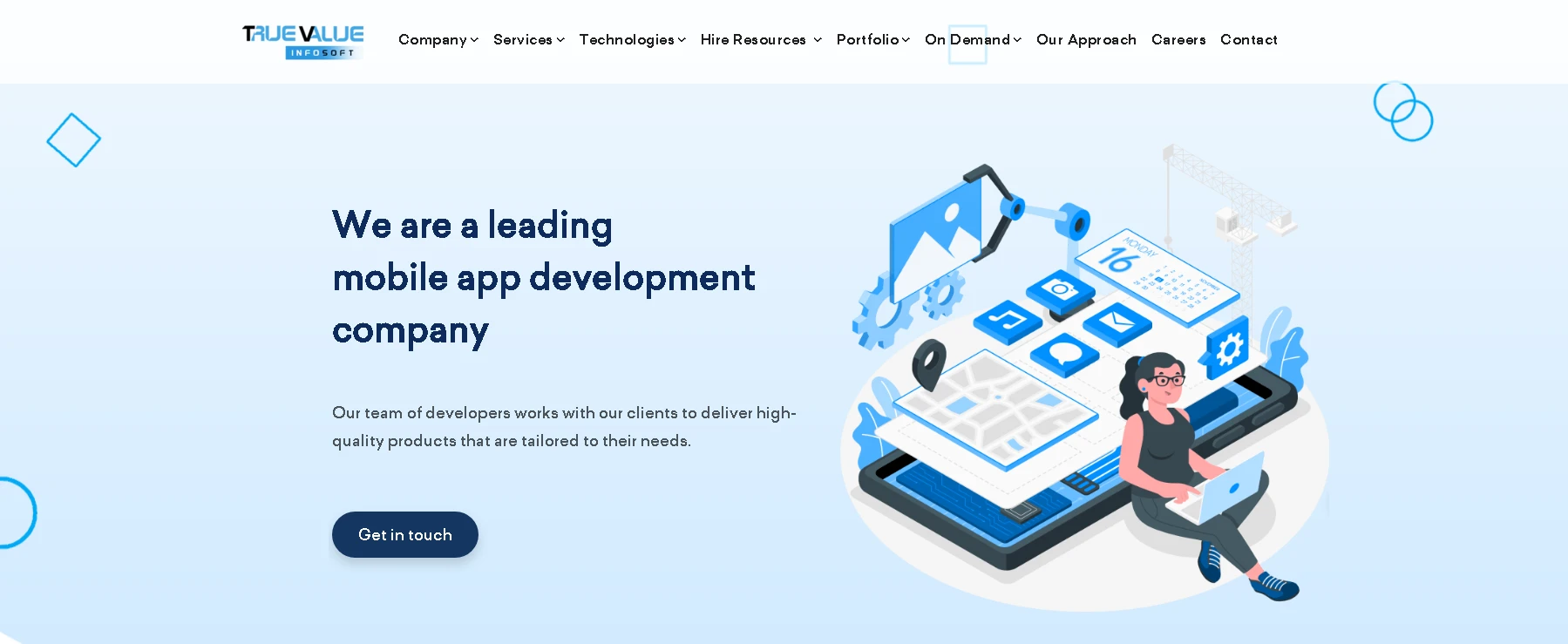
True Value Infosoft is a leading IT solutions provider dedicated to enabling digital transformation through:
- Customized Software Development: Tailor-made solutions for businesses of all sizes.
- Cloud Computing and AI Services: Scalable and intelligent digital infrastructure.
- Cybersecurity Solutions: Robust protection against cyber threats.
- E-Governance and FinTech Solutions: Secure and efficient digital platforms.
- Expert IT Consultation: Industry-specific technological insights and solutions.
Case Study: Digital Transformation in Indian MSMEs
Challenge: Many Micro, Small, and Medium Enterprises (MSMEs) struggled with digital adoption due to a lack of expertise and resources.
Solution: True Value Infosoft implemented cloud-based enterprise solutions, digital payment systems, and AI-powered analytics to enhance productivity and customer engagement.
Results:
- Increased operational efficiency by 40%
- Enhanced customer experience through AI-driven recommendations
- Secure and seamless digital transactions, boosting trust and revenue
Conclusion
Technology is the driving force behind India’s digital economy, enabling growth, innovation, and accessibility across sectors. By 2030, advancements in AI, blockchain, IoT, and cloud computing will further accelerate digital transformation. True Value Infosoft stands at the forefront of this revolution, providing cutting-edge tech solutions to empower businesses and individuals. Embracing digital transformation today will pave the way for a smarter, more connected, and economically robust India in the future.
FAQs
AI is expected to enhance automation, improve efficiency across industries, and drive innovation in sectors like healthcare, finance, manufacturing, and agriculture. With advancements in AI-driven analytics, machine learning, and automation, businesses will experience increased productivity, reduced costs, and improved customer experiences, thereby accelerating India's digital transformation.
Technologies such as 5G, blockchain, quantum computing, and the Internet of Things (IoT) will play a pivotal role in expanding digital connectivity, enhancing cybersecurity, and enabling smart infrastructure. These innovations will facilitate seamless digital transactions, improve governance through e-governance solutions, and boost sectors like fintech, supply chain management, and smart cities.
While AI and automation may replace certain repetitive jobs, they will also create new opportunities in AI development, data science, cybersecurity, and digital services. Upskilling and reskilling initiatives will be crucial to preparing India’s workforce for AI-driven roles, ensuring a balance between automation and employment growth.
Key challenges include digital infrastructure gaps, data privacy concerns, ethical AI deployment, and the need for robust regulatory frameworks. Additionally, bridging the digital divide by ensuring rural and semi-urban areas have access to digital services and AI-driven solutions remains a priority.
India needs a comprehensive AI policy focusing on transparency, data protection, and ethical AI usage. Collaboration between the government, private sector, and academia is essential to develop AI-driven solutions that align with India's socio-economic goals while addressing issues such as bias, misinformation, and cybersecurity risks.
